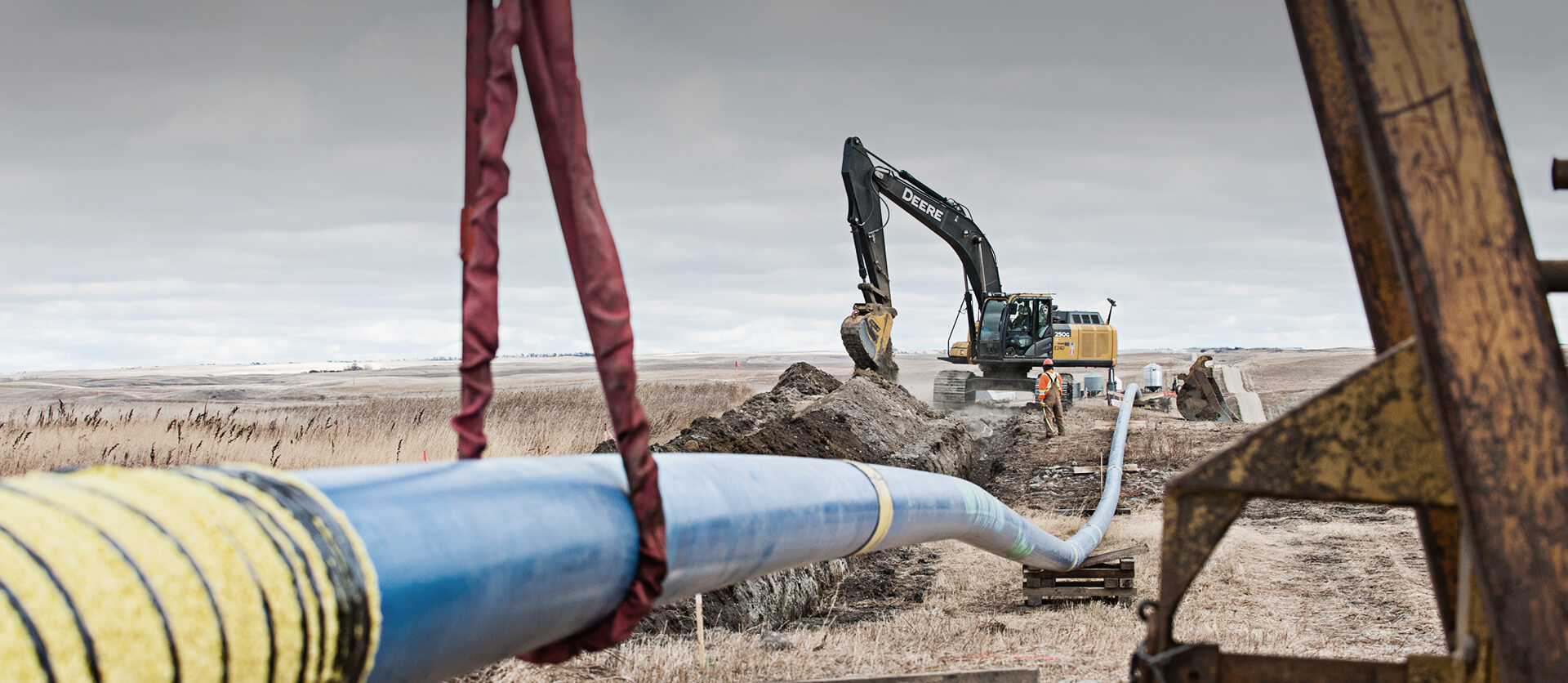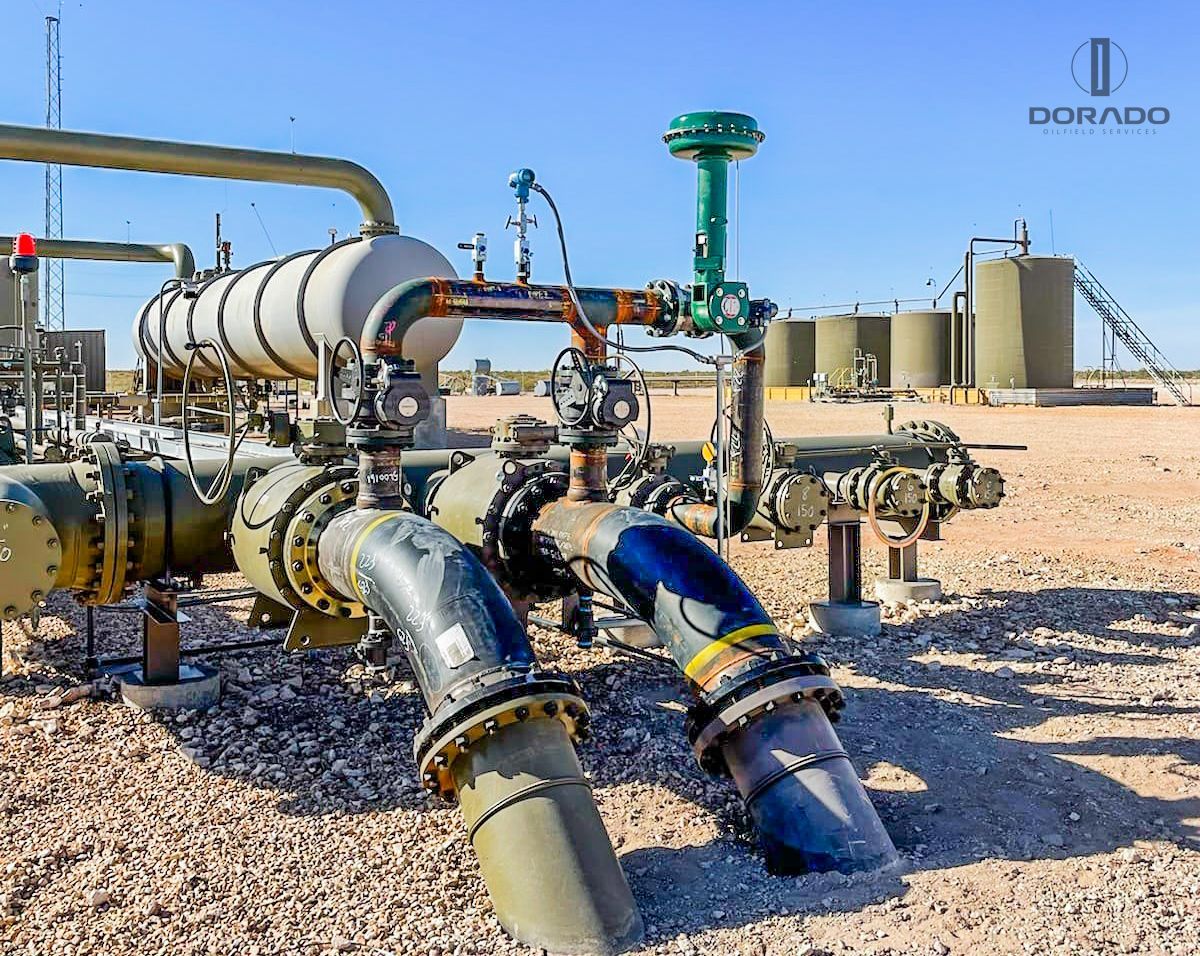Pipeline Construction Services: Warranties, Guarantees, and Quality Assurance
Wiki Article
The Crucial Guide to Recognizing Pipeline Construction Services and Their Relevance
Pipeline Construction services are basic to the transportation of crucial resources such as water, oil, and gas. These services include thorough planning and execution, adhering to rigid safety and security and environmental requirements. As the sector adapts to modern-day challenges, comprehending its ramifications and parts becomes progressively vital. What elements contribute to the expanding value of these solutions in today's economic climate? The complying with areas will certainly discover these crucial elements.Introduction of Pipeline Construction Solutions
Pipeline Construction solutions include an array of tasks crucial for the installation and upkeep of pipes used to deliver various compounds, consisting of gas, oil, and water. These services are crucial for guaranteeing the efficient and secure activity of sources from one place to another. The procedure commonly starts with detailed preparation and style, which takes into consideration regulatory requirements, ecological factors to consider, and logistical challenges.Excavation and grading of the land are conducted to prepare the website for Pipeline installment when planning is full. This is adhered to by the real laying of the pipes, which entails welding or signing up with sections with each other to produce a continuous circulation course. After setup, rigorous screening is carried out to assure stability and safety. Upkeep services are additionally provided to resolve any type of concerns that may arise gradually. Generally, Pipeline Construction solutions play an essential duty in supporting infrastructure for energy and water circulation.
Key Elements of Pipeline Construction
An effective Pipeline Construction project counts on several crucial parts that guarantee the reliable and safe installment of the Pipeline system. Detailed site evaluations are critical, as they identify the ecological and geographical factors that may impact Construction. Next off, the option of appropriate materials, such as pipelines and installations, is essential for protecting toughness and compatibility with the transferred compounds.Additionally, progressed Construction techniques, consisting of trenchless modern technology and directional drilling, enhance performance and decrease ecological influence. Reliable task administration is another vital element, collaborating labor, devices, and timelines to satisfy project objectives.
Furthermore, communication among stakeholders, including engineers, specialists, and regional authorities, guarantees placement on task specs and requirements. Extensive quality control actions throughout the Construction process ensure conformity with market standards and maximize the Pipeline's functional lifespan. Jointly, these components create the backbone of an effective Pipeline Construction job.
Safety Requirements and Laws in Pipeline Construction

Boosting Governing bodies, such as the Occupational Security and Wellness Management (OSHA) and the Pipeline and Hazardous Products Safety Management (PHMSA), stated certain demands that regulate Construction techniques. These consist of protocols for devices usage, employee training, and emergency reaction treatments. By applying these criteria, Construction business not only shield their workers but also safe and secure public trust fund. Eventually, rigorous precaution add to the long-lasting success of Pipeline tasks, ensuring they fulfill both ecological and functional expectations.
Ecological Considerations in Pipeline Projects

Ecological factors to consider are important to the planning and execution of Pipeline jobs. These tasks should examine potential effect on ecosystems, water resources, and neighborhood wildlife. Conducting thorough environmental effect analyses (EIAs) is vital, allowing stakeholders to recognize and mitigate dangers before Construction starts.
Protecting delicate areas, such as environments and marshes, frequently requires executing certain layout features or alternate directing to decrease disturbance. Additionally, Pipeline drivers are charged with creating methods for avoiding spills and leakages, which can have terrible impacts on the atmosphere.
Engagement with local communities is important, as public problems can lead to task alterations that boost ecological protection. Compliance with policies set by ecological companies assures that tasks satisfy sustainability standards, promoting a balance between framework requirements and environmental preservation. Inevitably, resolving environmental considerations not just safeguards nature yet also advertises neighborhood trust and job stability.
The Function of Innovation in Pipeline Construction
Technology plays an important function in modern Pipeline Construction, boosting efficiency and accuracy. Advanced evaluating methods enable exact planning and implementation, reducing ecological effect and task delays. In addition, the combination of automation and robotics simplifies operations, lowering labor expenses and boosting security on Construction sites.Advanced Evaluating Methods
Advanced surveying techniques play a crucial duty in the successful implementation of Pipeline Construction projects. These methods take advantage of advanced modern technology to guarantee accurate mapping and evaluation of the surface where Full Article pipes will certainly be set up. Strategies such as Geographic Information Solution (GIS), LiDAR (Light Discovery and Ranging), and 3D modeling allow designers to examine the landscape and envision, recognizing potential obstacles and environmental worries. By utilizing these sophisticated devices, teams can improve accuracy in placing and positioning, significantly minimizing the threat of mistakes throughout Construction. Additionally, real-time data collection enables for prompt adjustments and notified decision-making throughout the job lifecycle. Eventually, these evaluating innovations contribute to improved efficiency, safety, and sustainability in Pipeline Construction efforts.Automation and Robotics

Economic Influence of Pipeline Facilities
description Pipeline infrastructure plays an important duty in shaping regional economic situations and assisting in profession. By providing a reliable methods of carrying oil, gas, and various other commodities, pipes reduce transportation prices and enhance supply chain performance. This infrastructure draws in financial investment, promotes work creation, and promotes financial development in surrounding areas.In addition, the Construction and maintenance of pipelines add considerably to regional economic situations, creating various work possibilities in various fields, from design to labor. The influx of work frequently leads to boosted investing in neighborhood organizations, further reinforcing financial task.
In addition, pipes boost power protection by ensuring a stable supply of sources, which is critical for household demands and industrial procedures. As areas end up being interconnected via Pipeline networks, they get to wider markets, enhancing competitiveness and financial durability. Consequently, the economic effect of Pipeline infrastructure is complex, affecting both instant local economies and more comprehensive local development.
Future Fads in Pipeline Construction Solutions
The future of Pipeline Construction solutions is progressing in response to technical improvements, governing modifications, and expanding environmental factors to consider. Advancements such as drones and robotics are streamlining assessment and maintenance procedures, enhancing security and performance. Automation is poised to lower labor costs and enhance accuracy in Construction operations. Furthermore, the enhancing emphasis on sustainability is motivating companies to take on eco-friendly materials and methods, straightening with global initiatives to minimize carbon impacts.Regulatory structures are also adjusting to deal with ecological influences, promoting better transparency and accountability in Pipeline projects. Additionally, the combination of wise modern technologies, including real-time surveillance systems, is anticipated to enhance the dependability and efficiency of Pipeline networks. As energy demands shift toward renewable sources, Pipeline Construction services will likely see an increase in jobs connected to biofuels and hydrogen transportation. On the whole, helpful resources these fads show a transformative duration for the Pipeline Construction sector, concentrated on innovation and sustainability.
Frequently Asked Questions
What Types of Pipelines Are Frequently Built?
Different kinds of pipes are frequently built, including oil, sewer, water, and gas pipelines - Pipeline Construction Services. Each serves distinct functions, assisting in the transport of vital resources across areas while sticking to security and environmental guidelinesThe length of time Does a Regular Pipeline Job Take?
The period of a regular Pipeline job varies greatly, usually varying from a number of months to a few years. Variables influencing this timeline include task complexity, governing approvals, and ecological considerations that should be addressed.Who Regulates Pipeline Construction Business?
Pipeline Construction business are regulated by various federal, state, and regional companies, including the Pipeline and Hazardous Materials Security Management (PHMSA) and state public energy payments, guaranteeing compliance with safety and ecological criteria throughout the Construction procedure.What Prevail Products Used in Pipeline Construction?
Usual products used in Pipeline Construction consist of steel, polyethylene, and PVC. Each product supplies distinct advantages such as sturdiness, versatility, and resistance to deterioration, making them suitable for different applications in delivering liquids and gases.
Just How Are Pipeline Construction Costs Approximated?
Pipeline Construction costs are approximated by examining factors such as material expenditures, labor rates, task complexity, ecological factors to consider, and regulatory demands (Pipeline Construction Services). Exact cost estimation assurances efficient budgeting and task planning throughout the Construction processPipeline Construction services encompass a variety of tasks important for the setup and upkeep of pipes made use of to transfer different compounds, consisting of water, gas, and oil. A successful Pipeline Construction project relies on a number of vital parts that guarantee the effective and safe setup of the Pipeline system. Advanced checking strategies play an essential role in the successful execution of Pipeline Construction jobs. Different kinds of pipes are generally created, consisting of oil, sewer, water, and gas pipes. Pipeline Construction expenses are estimated by evaluating elements such as material expenses, labor rates, job complexity, ecological factors to consider, and governing requirements.
Report this wiki page